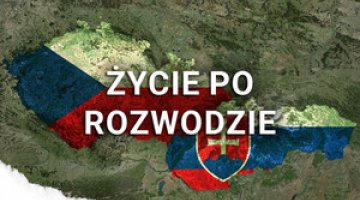Czech support for Nord Stream 2
On 24 November, the Czech president Miloš Zeman informed the Czech media during an official visit to Russia that he had voiced the support of the Czech Republic for the construction of the Nord Stream 2 gas pipeline. He added that he had consulted this stance with the minister for industry and trade who was travelling with him as a member of the presidential delegation. The Czech Ministry of Foreign Affairs, referring to the president’s statement, has declared that the official government’s position is that “if the Nord Stream 2 project were to be implemented, it would have to be in compliance with European law.” In the middle of November, the Czech media also published a statement from the head of the Council of the Energy Regulatory Office approving of the plans to develop the Czech gas infrastructure in order to increase the transit between Germany and Slovakia presented by the Czech transmission system operator, Net4Gas.
Commentary
- Over the past few years, the Czech government has given unclear hints as regards its approach to the construction of Nord Stream 2. In 2015, the government refused to sign a letter from seven EU energy ministers to Maroš Šefčovič, the Vice President of the European Commission, criticising the gas pipeline. A few months later, the prime minister signed a letter to Jean-Claude Juncker, the President of the European Commission, which also criticised Nord Stream 2, albeit in a milder tone. On the one hand, Prague is trying to avoid a dispute with Germany because the strong connection between the Czech and German energy infrastructures essentially contributes to ensuring a high level of the security of gas supplies to the Czech Republic. On the other hand, along with Central European countries, it is ready to put pressure on EU institutions to make sure that the Nord Stream 2 project is implemented in compliance with EU law and the rules of the energy union. It is also continuing its participation in Visegrad projects aimed at improving the region’s energy security.
- President Zeman made his declaration in Moscow a few weeks before the government in the Czech Republic is set to change and power will be taken by Andrej Babiš and his grouping ANO 2011, which currently co-governs the country with the Social Democrats (ČSSD) and the Christian Democrats (KDU-ČSL). The fact that the government has not refuted with the president’s statement nor has the opposition criticised it indicates that Nord Stream 2 is not a subject of political controversy in the Czech Republic. As a deputy prime minister, Babiš has avoided expressing an opinion about the gas pipeline, claiming that he wanted to avoid a conflict of interest in connection with his business activity in Germany (Agrofert, a corporation he transferred to trust funds, is also a major gas recipient in the Czech Republic and Slovakia). As the head of government, Babiš is unlikely to raise a discussion over Nord Stream 2 nor to interfere with the plans of the transit gas pipeline operator, Net4Gas (a company co-owned by Germany’s Allianz and Canada’s Borealis).
- Net4Gas views Nord Stream 2 above all through the prism of the intensified usage of the gas network and, as a consequence, of higher profits. Even though the project of improving the transport capacity of the Czech transit network presented by the company (Capacity4Gas) may be used for transporting any gas in the region, it is above all adjusted to receiving and transiting gas from Nord Stream 2. The Capacity4Gas project coordinated with transmission system operators from Germany and Slovakia envisages, amongst other things, the construction of an interconnector between the Czech transport network and the German gas pipeline EUGAL (the southern branch of Nord Stream 2), the construction of a new gas pipeline parallel to the Gazelle gas pipeline running via the Czech Republic (from the border with Saxony to the border with Bavaria) and increasing the export capacity from the Czech Republic to Slovakia. Such investments meet the demands of the market, one proof of which are the results of the auctions in March in which participants of the gas market reserved capacities in the planned gas pipelines on the route running from Germany via the Czech Republic to Slovakia.





